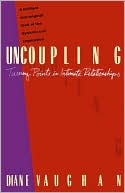Category Books
- Fiction Books & Literature
- Graphic Novels
- Horror
- Mystery & Crime
- Poetry
- Romance Books
- Science Fiction & Fantasy
- Thrillers
- Westerns
- Ages 0-2
- Ages 3-5
- Ages 6-8
- Ages 9-12
- Teens
- Children's Books
- African Americans
- Antiques & Collectibles
- Art, Architecture & Photography
- Bibles & Bible Studies
- Biography
- Business Books
- Christianity
- Computer Books & Technology Books
- Cookbooks, Food & Wine
- Crafts & Hobbies Books
- Education & Teaching
- Engineering
- Entertainment
- Foreign Languages
- Game Books
- Gay & Lesbian
- Health Books, Diet & Fitness Books
- History
- Home & Garden
- Humor Books
- Judaism & Judaica
- Law
- Medical Books
- New Age & Spirituality
- Nonfiction
- Parenting & Family
- Pets
- Philosophy
- Political Books & Current Events Books
- Psychology & Psychotherapy
- Reference
- Religion Books
- Science & Nature
- Self Improvement
- Sex & Relationships
- Social Sciences
- Sports & Adventure
- Study Guides & Test Prep
- Travel
- True Crime
- Weddings
- Women's Studies
Uncoupling: Turning Points in Intimate Relationships » (Reprint)

Authors: Diane Vaughan
ISBN-13: 9780679730026, ISBN-10: 0679730028
Format: Paperback
Publisher: Knopf Doubleday Publishing Group
Date Published: September 1990
Edition: Reprint
Author Biography: Diane Vaughan
Book Synopsis
Many books explain why relationships end, but never before has a book shown in riveting step-by-step detail precisely how they end. Through extensive interviews and original research, Diane Vaughan reveals the underlying pattern beneath every disintegrating relationship. This is a groundbreaking book that will help anyone who has ever left a relationship—or been left—to understand "what happened". Perhaps even more important, it will help some people who don't even know their relationship is in trouble to see what is happening. Armed with a new awareness of what is usually an unconscious process—until it's too late—the partners acquire the ability to either live with it, control it, or change it. Vaughan shows that no matter what the characteristics of the couple involved, rich or poor, straight or gay, married or not, and whether they've been together 18 months or 18 years, the dynamics of the uncoupling process are essentially the same. The key to understanding how two people separate, according to Vaughan, is the role they assume in the leavetaking. Most often, one partner—the initiator—wants out of a relationship while the other wants the relationship to continue. Although both people must go through the same steps in altering their perceptions of each other and themselves, they do so at different times. By the time the still-loving partner realizes the relationship is in serious trouble, the initiator is already gone in a number of ways. Uncoupling begins with the initiator's first secret awareness of discomfort, depicts his or her search for a confidant (who is selected is a telling factor), and reveals the subtle, often barely perceptible signalling of his discontent to the partner. Vaughan traces the initiator's groping for and testing of a new single identity and depicts the initiator's confrontation with the partner. She shows how two people try and why trying often fails. Finally, she explains how the partner makes his or her own transition out of the relationship. Replete with case histories, many poignant, the book provides answers to many puzzling questions: why one person can sometimes take the end of a long-term relationship so calmly...why counseling so often fails...why one member of a couple can be so much better prepared for a single life than the other...why some people never psychologically separate...and much more.
Table of Contents
Subjects
 Domestic Relations Law
Domestic Relations Law  Domestic Relations Law - Divorce & Separation
Domestic Relations Law - Divorce & SeparationNonfiction
 Law
Law  Domestic Relations Law
Domestic Relations LawParenting & Family
 Family - Assorted Topics
Family - Assorted Topics  Marriage
MarriageParenting & Family
 Family Issues
Family Issues  Divorce
DivorceSelf Improvement
 See All
See All  Relationships
RelationshipsPolitical Books & Current Events Books
 Law
Law  Domestic Relations Law
Domestic Relations Law
